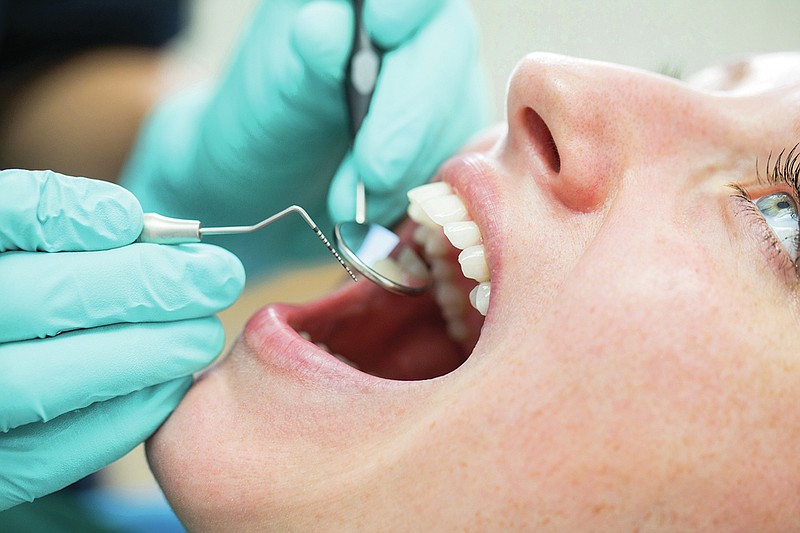Cancers of the mouth can affect anyone. The National Institute of Dental and Craniofacial Research says oral cancer makes up an estimated 3 percent of all cancer diagnoses made in the United States each year, which equates to roughly 54,000 new cases.
Because the mouth is comprised of many different types of cells, there are various forms of oral cancer. Each type depends on which cells are affected. Here's a closer look at the different types of oral cancer.
Squamous cell carcinoma
Memorial Sloan Kettering Cancer Center says squamous cell carcinomas account for 90 percent of all oral cancers. Squamous cells are thin and flat and make up the tissues that form the surface of the skin. They're also found in the lining of hollow body organs and the respiratory and digestive tracts.
Verrucous carcinoma
This is a slow-growing cancer that is made up of squamous cells. It is a rare subtype of squamous cell carcinoma that only accounts for about 5 percent of oral cavity tumors, according to the City of Hope® cancer center.
Oral melanoma
Melanomas develop in melanin, which are the pigment-producing cells that color the skin. Melanoma can occur anywhere on the skin, including inside the nose or mouth.
Lymphoma
Oral cancers also can affect lymph tissue. In terms of mouth cancer, lymphoid tissue can be found in the base of the tongue and in the tonsils.
While most mouth cancers are squamous cells, the cancer will be further classified depending on the exact location where it begins.
Buccal mucosa: The buccal mucosa is the inner cheek tissue. Lumps in this area should be checked out by a doctor.
Gum cancer: Gum cancer may be mistaken for gingivitis, but the two are not one and the same.
Mouth floor: Cancer in the floor of the mouth occurs in the horseshoe-shaped area under the tongue.
Hard palate: The hard palate is the roof of the mouth. This cancer often starts as an ulcer, according to MSKCC.
Oral cancers also can affect the lips, tongue and jaw.
Quite often dentists, who should inspect the mouth twice per year, are the ideal health professionals to detect oral cancers early on. Any abnormality in the mouth should be examined and addressed by a doctor. Risk factors for developing mouth cancers include smoking, drinking alcohol, using other tobacco products like chewing tobacco, and exposure to sunlight.
Individuals should be cognizant of oral cancers. Though oral cancers may not be as prevalent as other forms of the disease, they still pose a threat, especially when they are not detected in their earliest stages.
